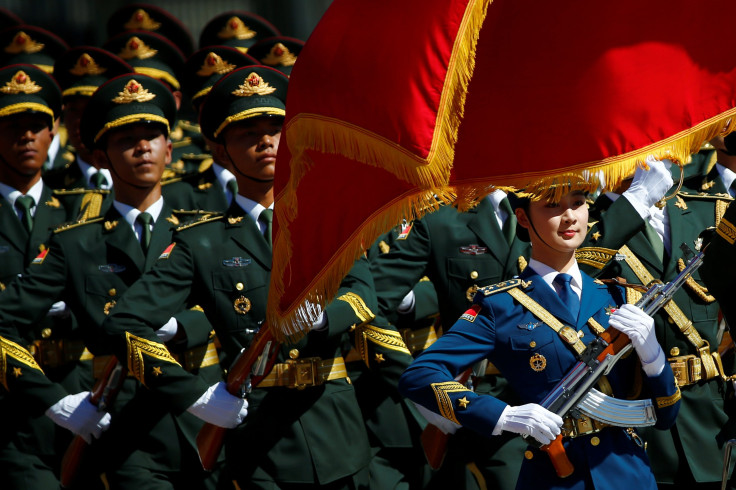How Strong Is China? Beijing Increases Weapons Sales To Expand World Influence

China has massively boosted its arms exports around the world in an effort to expand its sphere of political influence, according to a report published Friday by Sputnik News, a state-controlled Russian news agency.
Between 2012 and 2016, China overtook Germany, France and the U.K. to become the world's third-largest exporter of arms, according to a study published last month by the Stockholm International Peace Research Institute (SIPRI).
While the U.S. and Russia still dominated the world's weapons market, China has reportedly boosted not only weapons exports but the sales of advanced military technology, which SIPRI reportedly may not have taken into account in its figures. China's near doubling of weapons exports has helped the nation establish a newfound instrument for developing crucial political relationships around the world, according to military analyst Vassily Kashin.
"As China transitions to the active foreign policy of a great world power, its export of arms and military technology will turn increasingly into a foreign policy tool, losing its economic significance. It is likely that with the strengthening of China's influence in the world, we will see major new supplies of Chinese weapons and equipment, particularly in regions such as the Middle East and Africa," Kashin of the Russian Academy of Sciences' Far East Institute told Sputnik News.
China also maintained steady weapons sales to Africa, where Algeria made up about 9.28 percent of China's arms exports. Thanks to its security forces, the North African country has maintained its grip on jihadist organizations such as the Islamic State group, also known as ISIS, and al-Qaeda, that have conducted multiple attacks against civilians in neighboring Tunisia and Libya. China and Algeria established a pact of strategic partnership in 2014 and held another summit in Beijing last year strengthening the two country's ties. China also pledged to invest $60 billion throughout Africa months earlier.
Tensions between Beijing and Washington have remained strained since the election of President Donald Trump last year.
Trump has routinely attacked China over its economic policies, which the Republican leader accuses of promoting currency manipulation and exploiting cheap labor to take jobs from the U.S. China and the U.S. have expressed a mutual desire to work together, however, disputes in the South China Sea, across which Beijing has made broad territorial claims, has remained a flashpoint in relations between the two nations.
© Copyright IBTimes 2025. All rights reserved.






















